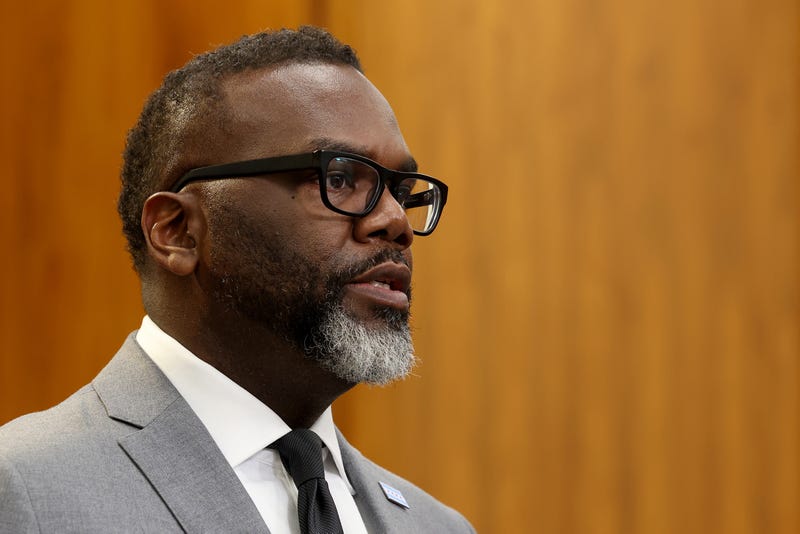
CHICAGO (WBBM NEWSRADIO) — Mayor Brandon Johnson was certainly the highest ranking cheerleader at the Chicago Bears stadium presentation on Wednesday, at which Johnson heaped lots of praise on the team’s proposal.
Johnson said it embraces all three of his administration’s requirements for any new development on the lakefront: real private investment, real public use and real economic participation for local workers and businesses.
He said this plan delivers.
“With this plan, the Bears are committing to $2 billion in investments,” Johnson said. “Chicago will experience increased tax revenue from this investment, expanded public recreation, stronger economic growth for the entire city of Chicago for generations to come.”
The plans, Johnson added, are in keeping with Daniel Burnham’s original vision for such spaces.
“He envisioned an active lakefront with space and amusement for everyone to enjoy. The plan revitalizes that vision, and today’s plan imagines … new parks with public sports fields, fieldhouse facilities for everyone — but especially our young people in this city,” Johnson said.
Team and city officials said the proposal would create no new taxes, nor would it raise existing ones. The mayor was so pleased that he repeated the declaration.
“One more time, to make sure that everybody gets that: This project will result in no new taxes on the residents of Chicago,” he said.
The repetition, though, didn’t appear to persuade one local sports economist. Professor Allen Sanderson, of the University of Chicago, said teams and politicians tend to significantly overestimate the economic benefits of a new football stadium.
He said that’s especially true for the proposed lakefront stadium, which he claimed is among the worst possible investments on such valuable property.
“There are only two things that you do not want to put on an expensive piece of property: a cemetery and a football stadium,” he said.
Sanderson said he believes the Bears have likely overestimated the economic benefits of the stadium by about 90%, and because of that he said it was likely that the project would create new taxes.
The local economy, he said, would benefit a lot more if that money were dropped over Chicago from a helicopter.
Listen to our new podcast Looped In: Chicago
Listen to WBBM Newsradio now on Audacy!
Sign up and follow WBBM Newsradio
Facebook | Twitter | Instagram | TikTok
